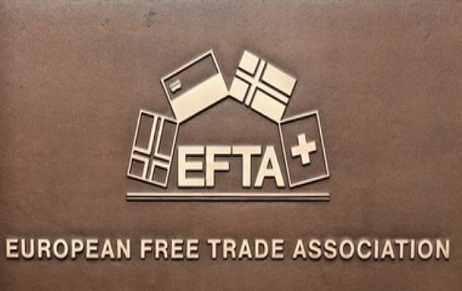This article delves into the ongoing debate around the issue of right of ownership of…
The Relevance of a Non-Disclosure Agreement in Protecting Your Intellectual Property
A Non-Disclosure Agreement (NDA) plays a pivotal role in various corporate transactions, employment agreements, negotiations or any other scenario wherein confidential information is being exchanged. In other words, it is a contract that enforces a confidential relationship between two or more parties wherein an agreement is made that any sensitive information that is made privy to the parties shall not be disclosed to any other person or entity. NDAs carry great relevance in various situations. For instance, if two corporates intend to venture into a business project together, an NDA may be initiated by either of the two parties to ensure that any type of sensitive information is not misused or is passed on to a competitor. These days, several employers also make it mandatory for employees to sign an NDA since they would have access to sensitive information related to the company. An NDA is a legally binding contract. Hence, punitive measures and legal penalties may been forced upon the party that breaches the NDA. An NDA may also outline several other conditions pertaining to the confidential information. This may include the time period involved, exclusions from the NDA, conditions under which the confidential information may be revealed and other miscellaneous clauses. Primarily, there are two kinds of NDA. A one-way NDA comes into picture when only one party is disclosing any kind of sensitive information. On the other hand, a mutual NDA is initiated when both the parties are privy to sensitive information and has decided to disclose the same. Apart from the two kinds of NDA, a confidentiality deed may also be initiated in order to make sure that any individual who is a part of discussions that are related to any kind of sensitive information is also a part of the confidential relationship.
In today’s age, business environments have become increasingly dynamic. Several companies strive to attain a level of uniqueness which sets them apart from the rest. Intellectual Property facilitates this uniqueness. IPs such as trademarks, patents and copyrights acts as a seal of uniqueness, authority and quality for every company. However, certain types of IPs are considered to be confidential. For instance, trade secrets include information that is unique, innovative and specific to the company. This trade secret is considered to be confidential information since making it available to other competitors would seriously impede the growth of the company. Thus, several companies are extremely vigilant about protecting their IP. Companies may take several measures to protect their IP which may include registering it as well as protecting it with the help of an NDA. In order to understand the significance of an NDA when it comes to protecting an IP, it is important to enumerate the circumstances under which your IP could be at risk. For instance, if a company has developed a product that is patented, the intricacies of that product may have to be revealed to investors or venture capitalists who may be interested in developing, investing or buying the product. In this case, initiating an NDA would be preferable since the company would not want the investors or anyone who is privy to sensitive information to ‘steal’ the idea, develop it further and generate profits out of it. Moreover, it is ideal that employees sign an NDA before commencing their tenure since they’d have access to all kinds of sensitive information pertaining to the company’s business model and the employer would not want an employee to leak the same to competitors.
In order to create an NDA that would thoroughly protect your IP, it is important to clearly elucidate all the terms of the agreement. This is crucial because inserting vague clauses in the NDA could translate to ambiguity which may be counterproductive to protecting your IP. Firstly, it is important to clearly define what constitutes an IP. Merely stating the ‘Intellectual Property of the Company’ would not be an ideal way to define what constitutes an IP. Instead, it is important to define the trademark, copyright, trade secret or the patent in detail while providing a brief overview regarding the intricacies of the same. This would help the parties involved understand what parts of the IP is considered to be confidential information by the company and what parts of the IP cannot be misused. At the same time, it is important to not give away substantial information regarding your IP since this may possibly lead to the parties misusing it. Moreover, it is important to clearly define the purpose behind disclosing the IP in a clear manner. Purposes, as mentioned earlier, may include the situations under which the details regarding the IP is made available to the parties involved. This includes employment, negotiations or investment opportunities. Secondly, it is important for the agreement to cover the consequences that a party may face upon breaching the NDA. This would make the NDA legally enforceable. If clauses pertaining to the NDA are breached, ideally, one party should be able to take legal measures that would protect a person’s legal rights. This may include taking one party to the Court of Law, mediating or claiming damages in the form of monetary compensation. Adding a clause related to the repercussions of breaching the NDA would strengthen your NDA and prevent the chances of the opposite party breaching the terms of the NDA with respect to your IP. Thirdly, trade secrets may require additional clauses in the NDA. This is primarily because, various companies are extremely vigilant about their trade secrets. It forms the crux of their business model and a company risks a lot when trade secrets are made known a party that exists outside the company. Thus, in cases wherein a trade secret is made known to a different party, the parties will continue to be bound by the agreement for a perpetual period of time. It is also important to mention this ‘perpetual period’ in NDAs that deal with trade secrets. In a constantly developing world like ours, companies are constantly striving for distinctiveness. Thus, enforcing an NDA would be a good practice in order to avoid the chances of any type of misuse of your IP.
Author: Sanjana, a BBA LLB student of Symbiosis Law School (Hyderabad), in case of any queries please contact/write back to us at [email protected].



